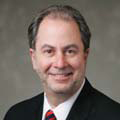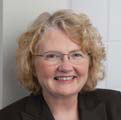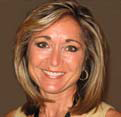Ask The Board
Q: What book has had the greatest impact on you personally/professionally and why?
A: THREE CENTURIES OF MICROBIOLOGY by Hubert Lechevalier and Morris Solotorovsky. Both authors were professors at Rutgers University. They taught a class called The History of Microbiology. You had to read the book and take an oral exam at the end of the course. They told me that if I got an “A” in the class they would accept me in their lab as a Ph.D. student. They also told me that no one ever got an “A” in their class. That “A” changed my life! The first change involves attitude. I learned to accept, even embrace, challenges with a realistic but consistently  positive attitude. The second change confirmed the importance of persistence. Keeping the goal in mind, it is important to persevere and stay the course. Sometimes, the only difference between you and your colleagues is your perseverance and commitment to achieving the goal.
positive attitude. The second change confirmed the importance of persistence. Keeping the goal in mind, it is important to persevere and stay the course. Sometimes, the only difference between you and your colleagues is your perseverance and commitment to achieving the goal.
Mitch Katz
In his position at Purdue Pharma L.P., Dr. Mitchell Katz is the executive director of medical research operations responsible for leading activities across all clinical programs. He has 26 years’ experience in the pharmaceutical and biotech industries.
Q: What would you describe as being the biggest game-changing technology in clinical trials and why?
A: ELECTRONIC MEDICAL RECORDS (EMRs). I recently attended the MAGI Clinical Research Conference in Philadelphia. I was stunned to learn the issues with implementing EMR systems and equally shocked at the number of systems in use. When I Googled EMR (according to one website www.capterra.com), I found there are 329 EMR systems on the market. Sites indicated that they struggle to get study-specific information into the EMR systems and have issues about output of information from the systems regarding management of protected health information (PHI). A requirement to train clinical research associates (CRAs) on systems is rarely factored into study setup. On  the sponsor and CRO sides, I am concerned that we are woefully unprepared to achieve potential efficiencies of data capture through EMR and question if we are doing enough to ensure alignment with the various EMR system procedures.
the sponsor and CRO sides, I am concerned that we are woefully unprepared to achieve potential efficiencies of data capture through EMR and question if we are doing enough to ensure alignment with the various EMR system procedures.
Mary Rose Keller
As a former VP of Clinical, Mary Rose Keller has proven success in planning, management, and delivery of global Phase 1 to 4 clinical trials for drug, biologic, and diagnostic products.
Q: What is the best leadership advice you ever received?
A: THE BEST LEADERSHIP ADVICE I EVER RECEIVED WAS GIVEN TO ME BY MORT COLLINS, CHAIRMAN OF THE VENTAIRA PHARMACEUTICS BOARD. I rapidly rose through the ranks at Ventaira and became president & CEO. During this time Mort advised me to “trust my gut.” He was an incredible mentor who empowered me at a pivotal point in my career. His belief in my capabilities, even when I was unsure, allowed me to grow. I began to rely on my intuition to gauge the appropriate timing of decisions and the course of action for the company. Of course, when and how to act is driven by the collection and interpretation of hard and soft data. As I look back, I do share this  advice with others, but I also add the importance of having a good mentor.
advice with others, but I also add the importance of having a good mentor.
Leslie Williams
Leslie Williams is president, CEO, and founder of ImmusanT, Inc., an early-stage company focused on peptide treatments for autoimmune diseases. She has more than 20 years of industry experience.
